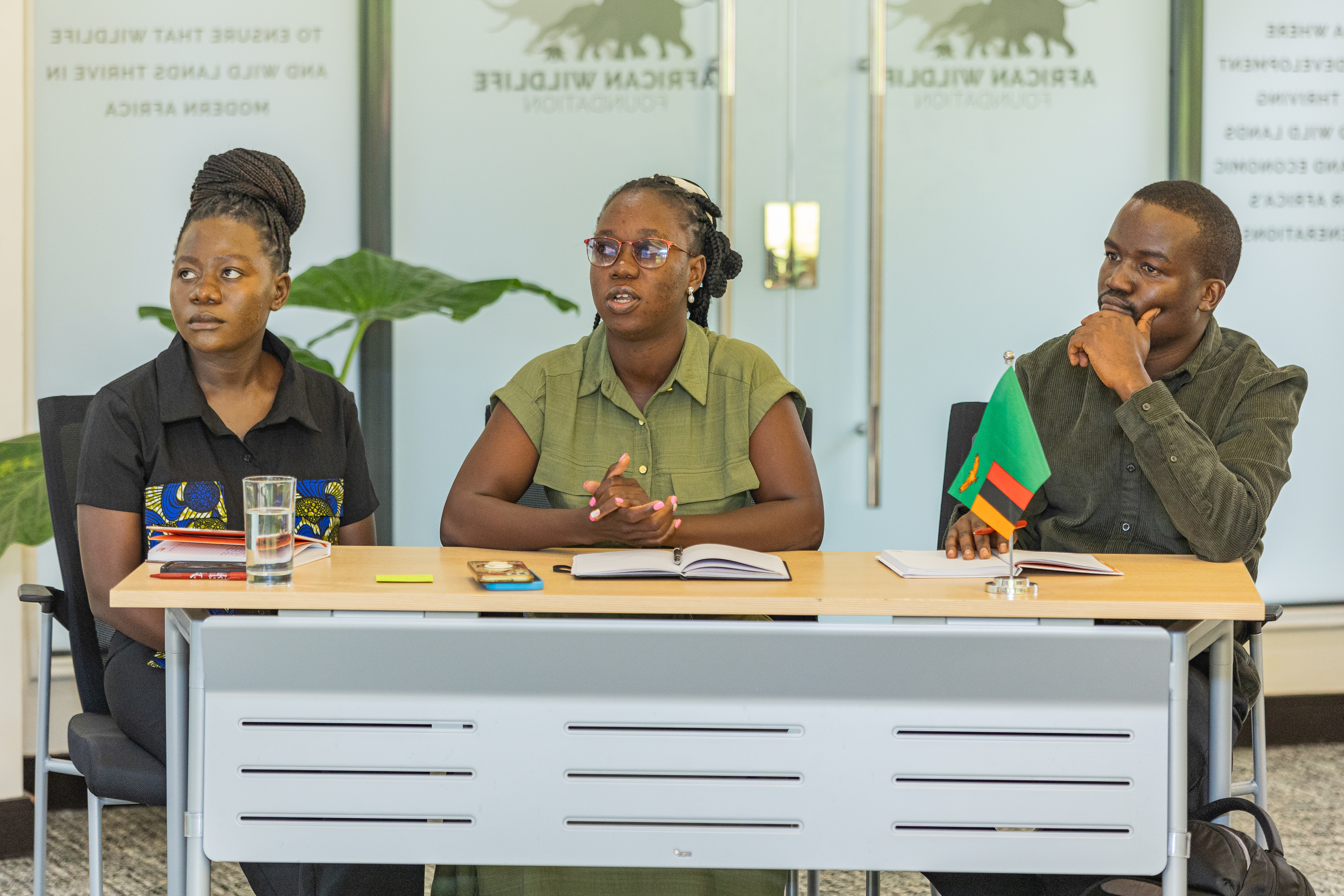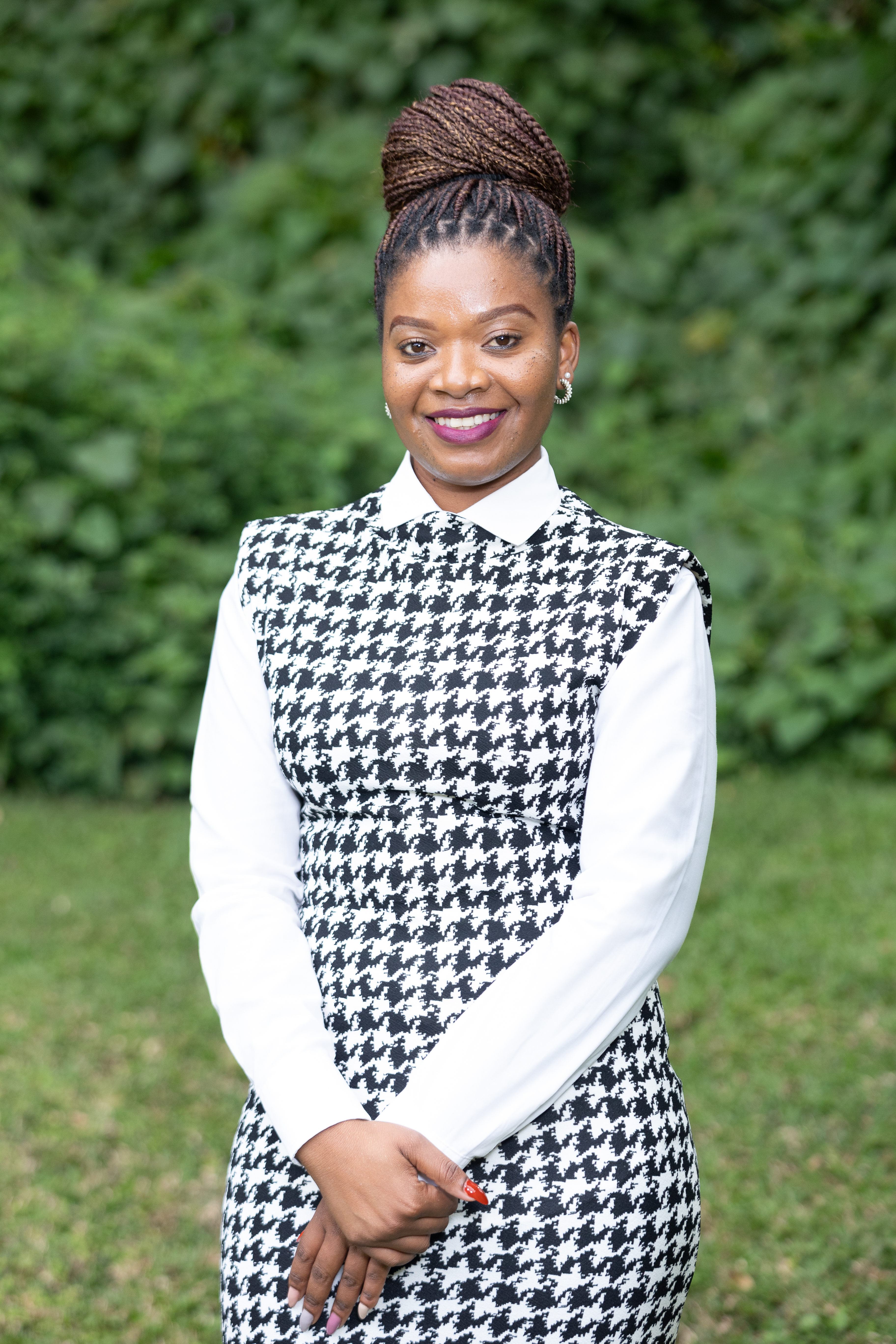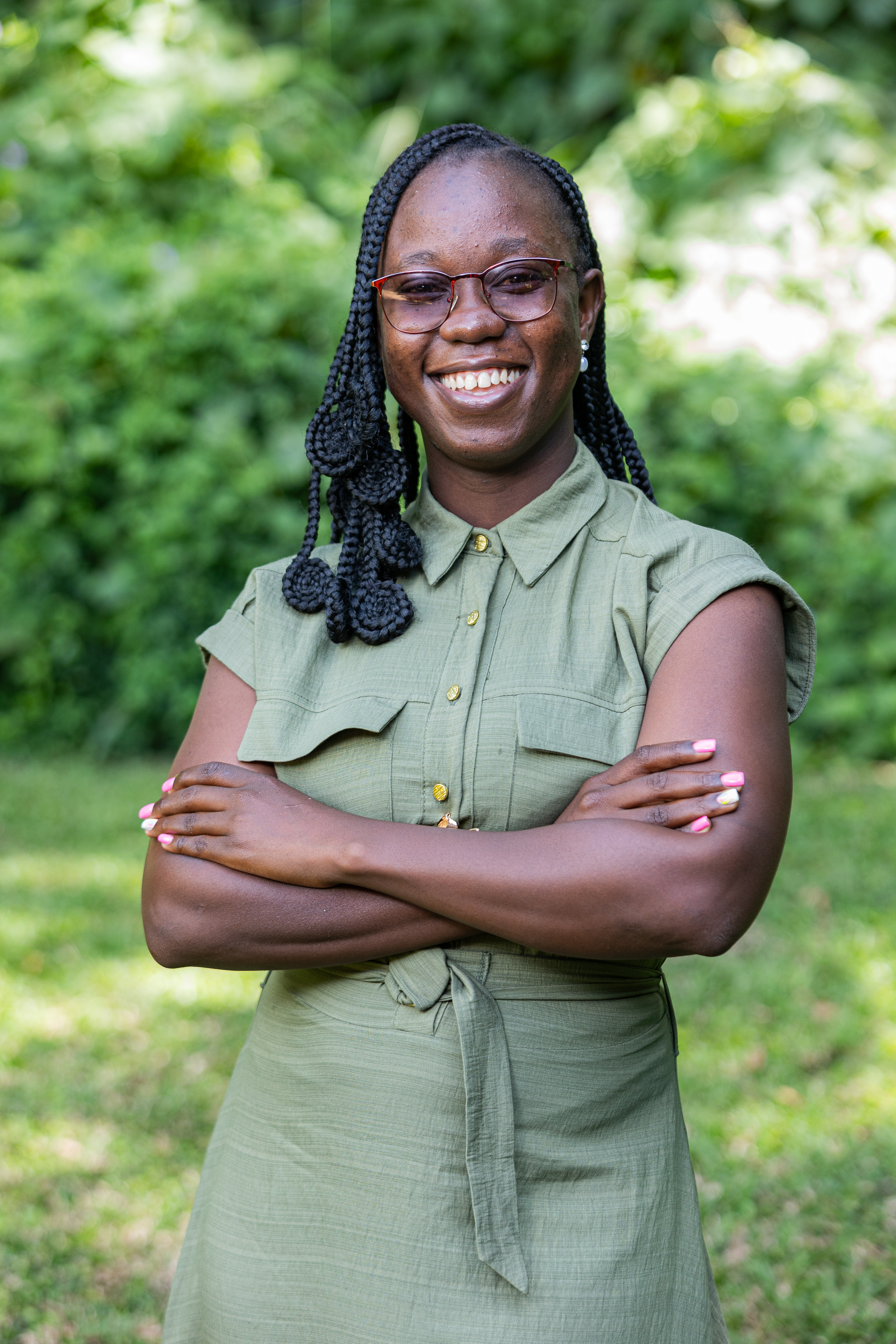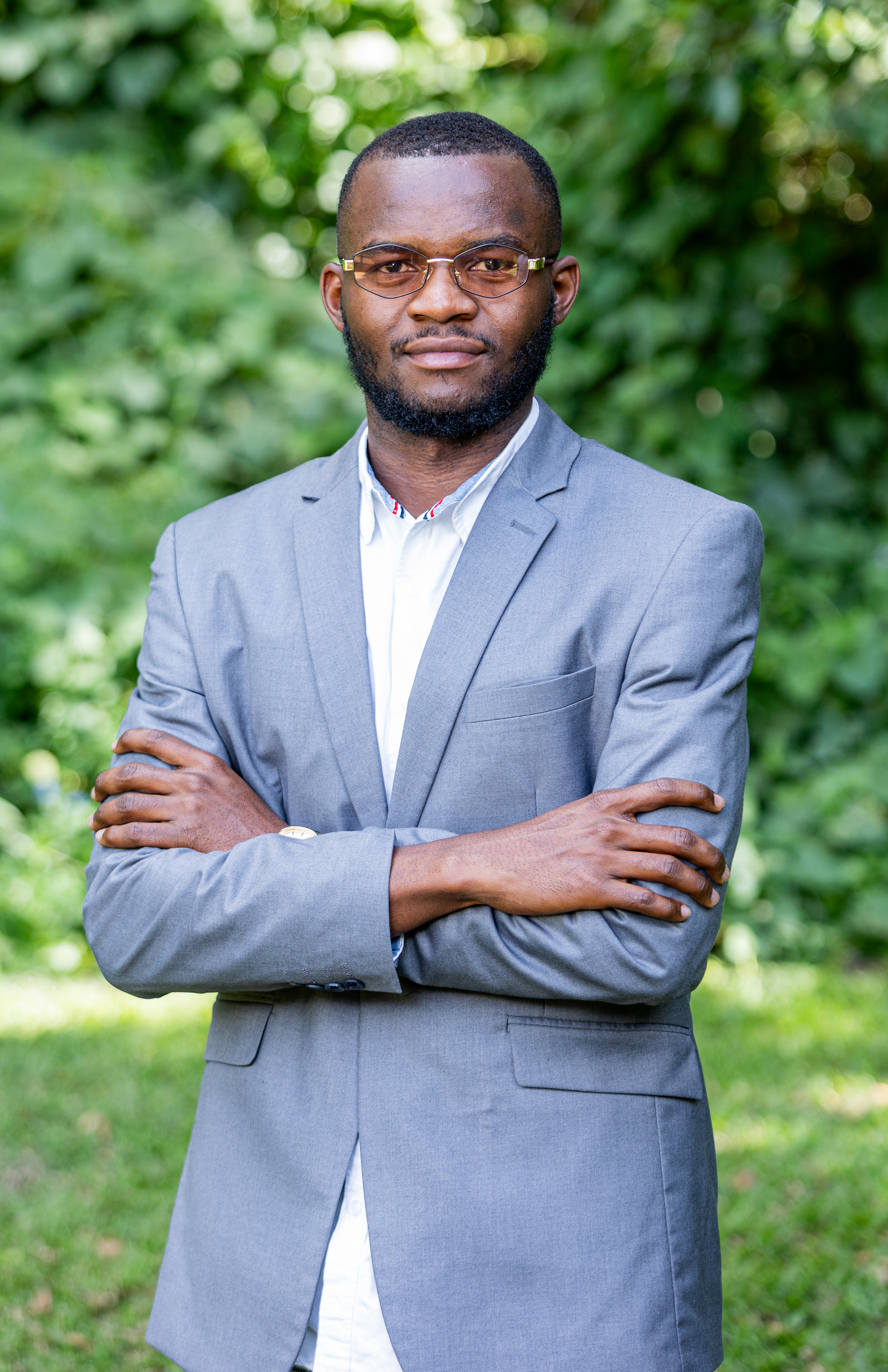Investing in Conservation Leaders To Transform Communities Through Sustainable Agriculture and Youth Engagement.

Some of the fellows from the AWF Wall Youth Leadership and Management Fellows 2025 cohort during one of the training sessions
Anganite Sibale is driven by passion. A passion to restore degraded lands while uplifting communities through climate-smart agriculture in her country, Malawi. Some of her earliest memories are those of a livelihood dependent on the land, witnessing how environmental degradation threatened food security.
“My inspiration came from observing how closely our livelihoods are tied to the land,” she says. This realization propelled her to promote sustainable agricultural practices that enhance biodiversity, soil health, and long-term productivity.

Anganite Sibale, AWF Wall Youth Leadership and Management Fellow from Malawi
Anganite’s work centers on fostering harmony between nature and agriculture. “I always ask, ‘Is this intervention sustainable for both the community and the ecosystem?’” she says. Her approach has led to remarkable achievements, including the planting of over 40,000 trees through community-driven agroforestry initiatives. By involving local schools, leaders, and farmers in nursery management, she ensures that communities recognize the economic and ecological value of trees.
“We didn’t just plant trees; we involved the community,” she notes. Anganite is one of the Wall Leadership and Management Fellowship fellows, an initiative of the African Wildlife Foundation (AWF) whose objective is to cultivate a new generation of conservation leaders.
In itself, the program nurtures dynamic professionals dedicated to sustainable development, conservation, and community-driven change. The AWF fellowship has sharpened Anganite’s leadership, transforming her into a policy advocate for Malawi’s agricultural future. “It challenged me to think beyond projects and consider the long-term impact of policy,” she says. Her experience, she says, has equipped her with global insights and practical tools in land use planning, which she now applies to local and national strategies.
Harnessing the Power of Youth in Conservation
In South Africa's Vhembe Biosphere Reserve, Mukona Kone, also a fellow, is harnessing the energy of youth to advance conservation and community upliftment. As Senior Youth Coordinator for the Vhembe Biosphere Reserve Youth Network, Mukona’s vision is to engage young people across the district’s five municipalities by 2025/2026.

Mukona Kone, AWF Wall Youth Leadership and Management Fellow from South Africa
Her strategic plan rests on four pillars: economic empowerment, conservation, community upliftment, and entrepreneurship. “We’ve led tree-planting initiatives, provided career guidance in rural schools, and helped set up school gardens that integrate learning with practical skills,” she shares.
Mukona’s work bridges urban and rural divides. As a Master’s student in Urban Planning, she explores how rural practices can inform sustainable urban development.
“Cities can learn about resilience and sustainability from rural traditions if they genuinely engage and listen,” she says. Her role as Secretary of the South African MAB Youth Network amplifies youth-led initiatives, such as wetland restoration and school gardening, despite limited government funding. She says the AWF fellowship introduced her to “Ikigai,” the concept of finding one’s life purpose, which resonated deeply. “I learned how to lead with clarity, adapt to change, and creatively find solutions, even when funding is limited,” she reflects. These skills are fueling her commitment to empower youth as conservation leaders in South Africa.
Policy Shift as a Solution to Africa’s Food Security
In the Democratic Republic of Congo, Ellie Bwira, also a fellow, is redefining agriculture through his agri-food company, SADDEB Farm. Driven by a belief that Congolese people deserve access to healthy, organic food, Ellie transformed his business idea into a broader mission for community well-being and environmental stewardship.

Eliie Bwire, AWF Wall Youth Leadership and Management Fellow from Democratic Republic of Congo
“I realized the importance of coupling local production with educating young people about the impacts of climate change and organic farming methods,” he says.
Ellie’s youth-led seed-sharing network faced challenges, particularly in engaging young people who didn’t see immediate economic returns. However, Ellie's persistence paid off, as a dedicated group of youth embraced the initiative’s long-term value.
“Our goal is to build a strong, engaged community passionate about driving positive change in agriculture and the environment,” he says. As a youth ambassador and FAO delegate at Youth Connect Africa 2024, Ellie continues to push for grassroots realities to shape high-level discussions. He advocates for innovative solutions, such as using drones and AI for crop management, and promotes agricultural education tailored for youth.
According to Ellie, three critical policy shifts need to be made to make agroecology a cornerstone of African food systems: reducing chemical use in agriculture, preserving natural ecosystems through initiatives like tree planting, and empowering youth with technology to adapt farming practices.
Through the fellowship, Ellie's perspective on the intricate connections between biodiversity conservation and agriculture has been expanded. “It offered me a new vision and a fundamentally different way of understanding these links,” he says.
The fellows represent a new wave of African conservation leaders, united by their commitment to sustainable development and community empowerment. Through the AWF Wall Leadership and Management Fellowship, they have gained the tools, vision, and resilience to tackle Africa’s environmental challenges.